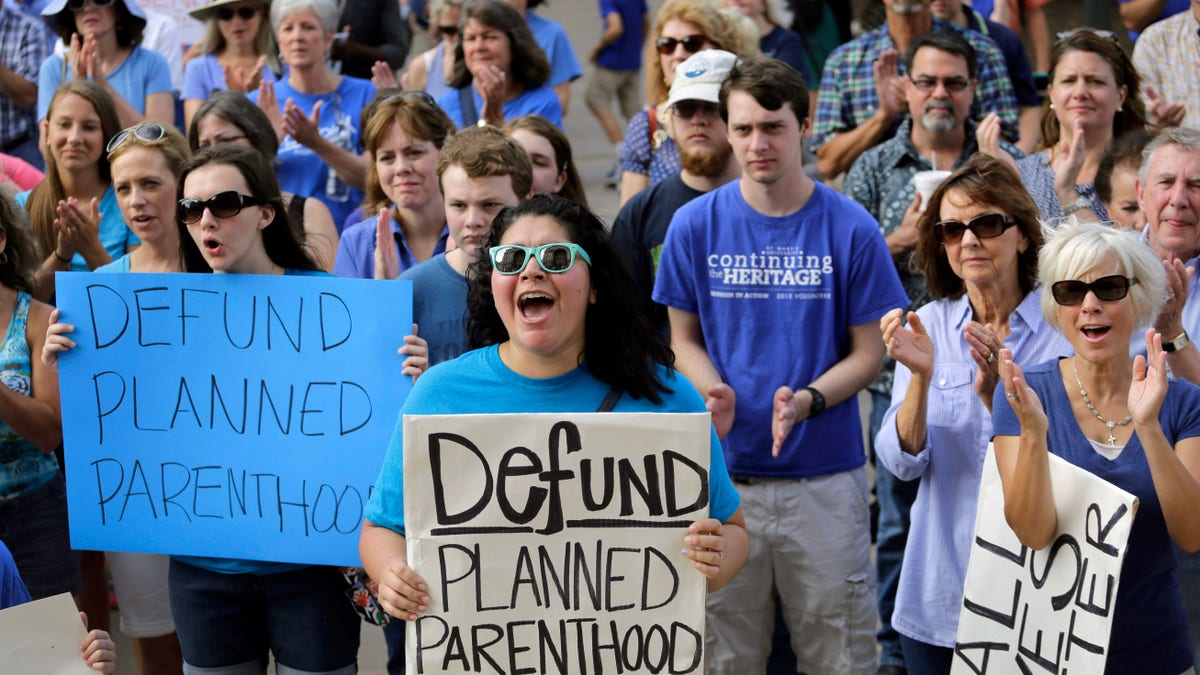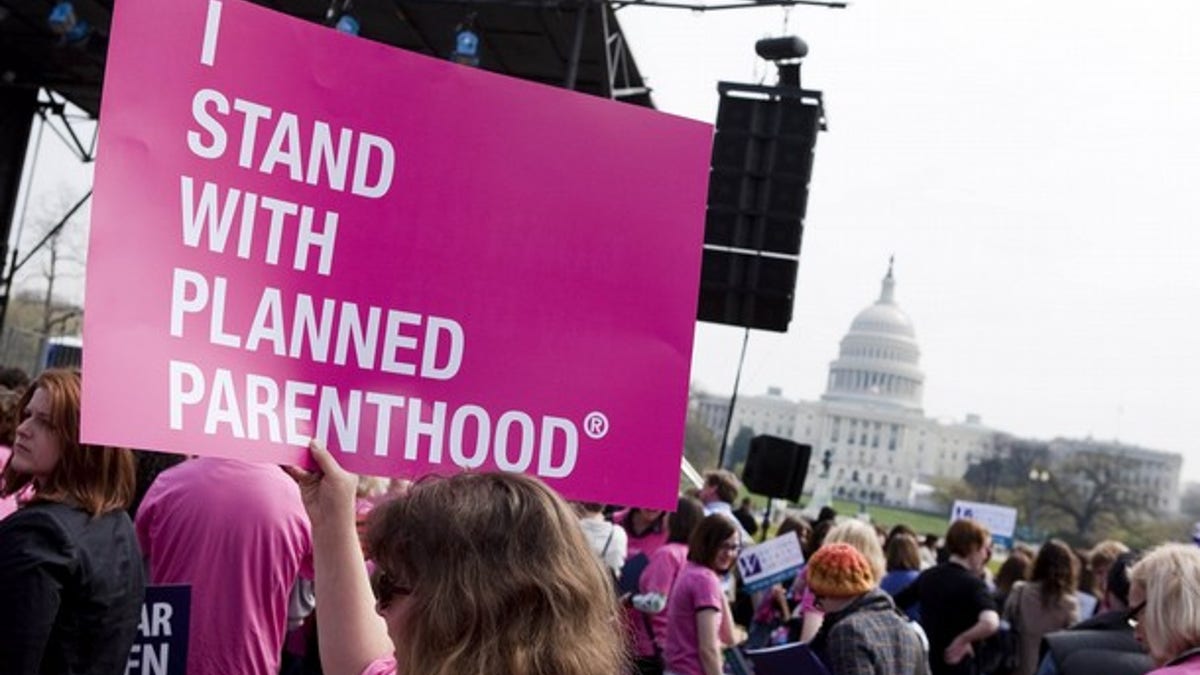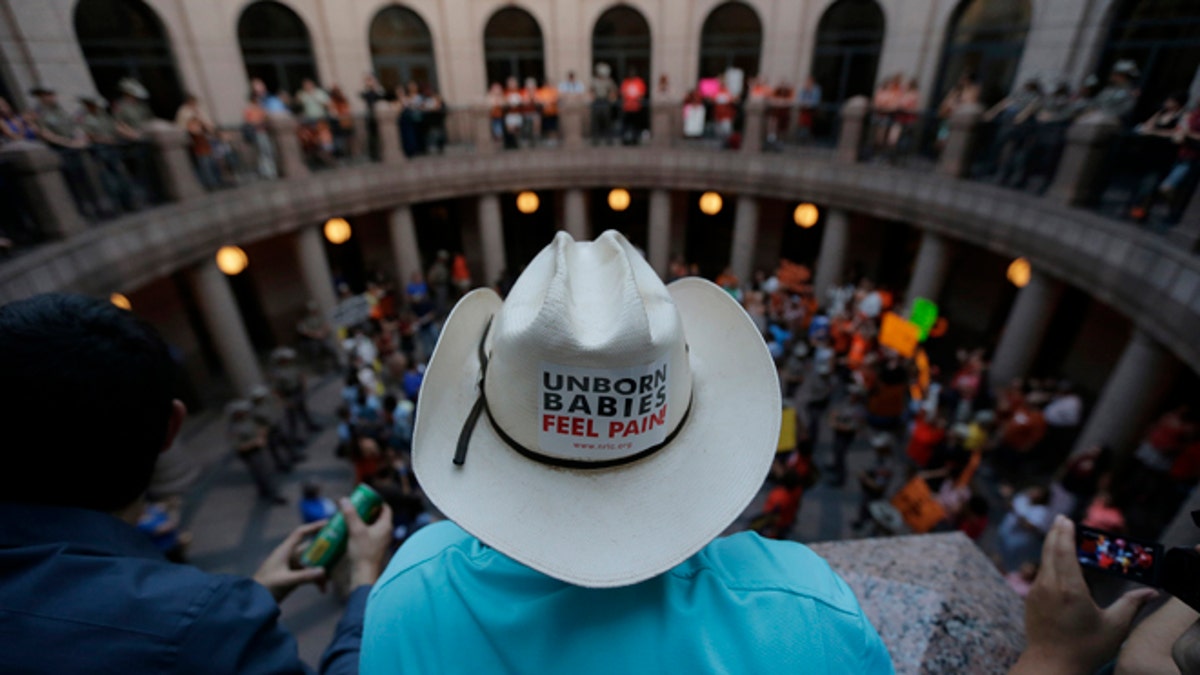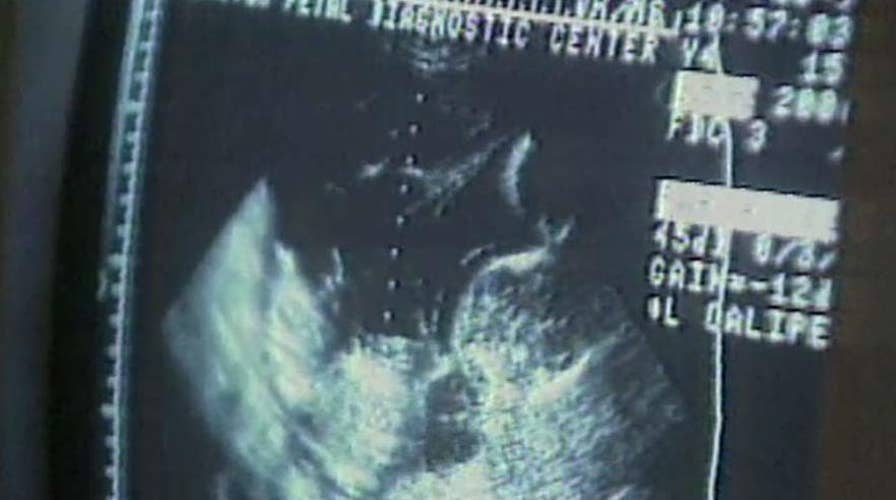Ohio on track to ban abortion after six weeks of pregnancy
Reaction on 'The Kelly File' to what would be one of the strictest abortion laws in the country
Planned Parenthood recently announced the shuttering of four of its 12 Iowa’s clinics in Iowa after the Hawkeye state’s Republican-led legislature voted earlier this year to cut funding to clinics that performed abortions. Also last week, the health care nonprofit announced it was closing its only clinic in Wyoming and three of its clinics in New Mexico in what it called a “realignment of resources.”
The news of the closures is the latest in a series of setbacks for abortion-rights supporters, who have seen their movement recently come under fire by Republican-controlled legislatures on both the state and federal level.
“What is happening in Iowa is what we could see across the country if Congress passes this dangerous law to defund Planned Parenthood,” Raegan McDonald-Mosley, chief medical officer at Planned Parenthood Federation of America, said in a statement shortly after the announcement of the Iowa closures. “This is hardest on people who already face barriers to accessing health care — especially people of color, young people, people with low to moderate incomes and people who live in rural areas.”
The move to cut state funding to abortion clinics began in Texas in 2011 when 82 family-planning centers closed -- a third of which were Planned Parenthood affiliates – after lawmakers in Austin voted to cut state funding.

FILE- In this July 28, 2015 file photo, Erica Canaut, center, cheers as she and other anti-abortion activists rally on the steps of the Texas Capitol in Austin, Texas to condemn the use in medical research of tissue samples obtained from aborted fetuses. Two state health researchers in Texas are under fire for a co-authoring a study suggesting what Republican leaders have long disputed - that cuts to Planned Parenthood are hurting access to womens health care. (AP Photo/Eric Gay, File) (AP)
Since then, antiabortion activists have seen a number of victories in the wake of Republicans taking control of Congress in 2012 as well as the release of undercover videos apparently showing Planned Parenthood executives discussing the sale of baby parts. Those videos, which were publicly released by the Center for Medical Progress (CMP), stirred antiabortion sentiment around the country. They also resulted in two of CMP's leaders being charged in California with numerous felony offenses.
In Arizona, GOP lawmakers included a provision in the state budget to divert about $2 million in federal funding away from Planned Parenthood. The GOP-backed health care bill that cleared the House earlier this month would block people who rely on Medicaid from getting subsidized preventive care at Planned Parenthood health centers -- including birth control, cancer screenings and testing for sexually transmitted diseases.
Estimates by the Congressional Budget Office indicate that defunding Planned Parenthood would save roughly $200 million in federal spending while reducing health care for as many as 390,000 people.
President Trump also issued recently an executive order on religious liberty that will likely make it easier for employers to drop coverage of contraceptives from their health care plans.
In Iowa, antiabortion groups praised the move last week by their state lawmakers in Des Moines, saying that the defunding of abortion providers would free up more money for other health clinics in the state, especially in less wealthy, rural regions.
“There are hundreds of clinics that provide great health care in the state that don’t harm human life,” Maggie DeWitte, the executive for Iowans for Life, told Fox News. “There are only so many dollars allocated for family clinics, so when you take out the aid to abortion clinics it gives a lot more benefit to other clinics.”

FILE: In this April 7, 2011, photo, members of Planned Parenthood, NARAL Pro-Choice America and more than 20 other organizations hold a "Stand Up for Women's Health" rally in support of preventive health care and family planning services, including abortion, in Washington. (REUTERS)
DeWitte added that there are many other family health clinics in Iowa that provide all the services that Planned Parenthood does -- emergency contraceptives, STD testing, birth control – without performing abortions.
“The big myth is that Planned Parenthood is the only gig in town that provides these services,” she said. “That is just not true.”
Some pro-life activists also noted that despite claims that these cutbacks in funding are forcing some abortion providers to close their doors, the reason may have to do with fewer women getting abortions today than in the past.
“There isn’t as much business to go around,” Randall O’Bannon, director of education and research at the National Right to Life Committee, told Fox News. “There’s a drop in demand. Abortion is not something women really want. They want something better for themselves and their babies.”

Opponents and supporters of an abortion bill gather in a courtyard outside a hearing for the bill at the state capitol, Tuesday, July 2, 2013, in Austin, Texas. Gov. Rick Perry has called lawmakers back for another special session with abortion on the top of the agenda. (AP Photo/Eric Gay) (AP)
While O’Bannon is correct that the U.S. has seen a drop in the number of abortions in recent years, the reason appears to be due more to an increased use of contraception and an increase in abortion restrictions in many states than it does personal choice.
In a study released earlier this year, the Guttmacher Institute – a reproductive rights research organization once affiliated with Planned Parenthood – found that the number of U.S. abortions fell from 958,700 in 2013 to 926,000 in 2014. A research letter published in JAMA in January found that in Texas 14 percent fewer abortions were performed in 2014 than 2013 and in counties where the distance to the nearest abortion facility increased by at least 100 miles, there was 50 percent decline in abortions.
A few states where Democrats have at least a share of power have taken steps to ensure continued funding of Planned Parenthood and to protect access to abortion and contraception. In Montana, Democratic Gov. Steve Bullock vetoed a bill last week that would have outlawed most abortions after 20 weeks of pregnancy, while Pennsylvania Gov. Tom Wolf has vowed to veto a similar bill if it reaches his desk, as well as a proposal to ban “dismemberment abortion.”
These moves aside, the antiabortion camp sees momentum on its side. As evidence, they cite Trump's appointment of federal judges who are widely viewed as receptive to further restrictions on abortion.
"Folks are excited that we've got a different administration, so there's a sense of optimism," said Melanie Israel of the Heritage Foundation. "Everyone is curious to see what's going to happen."
The Associated Press contributed to this report.

























